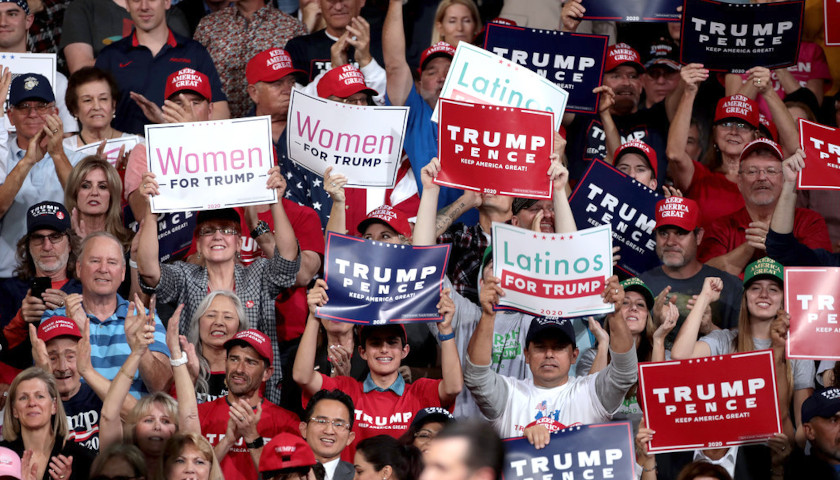by Austin Stone
Everyone knows how the 2016 election transformed the American electorate overnight. Many voters were shaken from their “tax cuts and gun rights” slumber and awakened to the decline and corruption of America’s culture, economy, and entire political system.
After that election, Republican voters watched many of their own representatives betray the MAGA movement rather than help their constituents change the status quo. Internet searches for the phrase “GOP establishment” increased by a hundredfold. The “deplorables”—also known as the people—laid siege to the elites with tremendous energy.
Eventually, the people’s representatives came along as well—or got primaried. To the horror of the liberal media, the MAGA candidate became an archetype for races across the country in 2018, 2020, and now the 2022 midterms. Coveted endorsements from former President Trump dominate news cycles, and Republican politicians compete with each other for conservative cred. The Anti-Defamation League, known for its leftist smear-campaigns, identified over 100 Republican candidates who are “right-wing extremists” running for office this year.
I call that a good start.
But Republicans’ new wine is still being poured into old wineskins—or, for a more current analogy, their new software is being installed on old hardware. Post-Trump candidates and their ideas are cutting edge. They’re focused on the nation’s very real crisis rather than old canards. But the machinery of political campaigns—the fundraising, grassroots, coalitions, media, and marketing strategy—hasn’t changed a bit.
It starts with a candidate’s message and how they spread the word. Most voters’ first encounter with a political candidate is through advertising. Trump’s 2016 digital team was ahead of this game, understanding the shift to social media and focusing on cheaper ad purchases through Facebook and Google. This also allowed for a broader range of political messages than traditional sources like news outlets and TV stations. Trump’s most important message—border security—was far outside what mainstream media would be willing to amplify. But social media was a different story.
Unfortunately, as we know, Big Tech learned and adapted after Trump’s victory, engaging in historic levels of censorship that ended with the permanent ban of the president of the United States himself in 2021. This censorship is now baked into how posts and ads are handled on Facebook and Google, preventing Trump-like candidates from owning the narrative as he did on issues like immigration and government corruption.
But most Republican campaign consultants haven’t figured this out—or if they have, they’re nevertheless willing to dumb down their client’s message to make it palatable for Big Tech’s algorithms. This is equally problematic when it comes to PR: To gain mainstream acceptance, consultants push good candidates into using generic establishment messages in their articles and interviews. Sure, it can result in more invitations to political broadcast shows. But this benefits the consultant more than the candidate, who is forced to modulate what was once a powerful message.
The gas in the engine of this political machine is money. Direct donations and Super PACs enable a candidate’s operations, including advertisements, ground game, hiring experts and proxies, and day-to-day travel and operating expenditures. The consultants in this business are paid by commission, so they are incentivized to maximize donations. Consultants for insurgent candidates often do this by broadening the message beyond their radical reform platform, steering them toward mainstream talking points and setting up meetings with the traditional power brokers and donors until the campaign becomes unrecognizable to the candidate’s base supporters.
The focus on money has also created consultants who behave like celebrities, using their position of power and influence to party on campaign donors’ dime. This has led to a frustrating disconnect between the “consultant class” and average Americans who hope for a new kind of candidate.
Republicans and insurgent candidates who want to put America First need to trim the fat from these outdated, compromised campaigns. Politicians need more than the right platform or good vibes. They need a team and a strategy focused on winning—not just the election, but the war we all recognize we’re fighting.
– – –
Austin Stone is managing partner at Beck & Stone and Knight Takes Rook. He is currently on assignment in Washington D.C., serving as chief operating officer for the Center for Urban Renewal and Education (CURE).
Photo “Trump Supporters” by Gage Skidmore. CC BY-SA 2.0.




